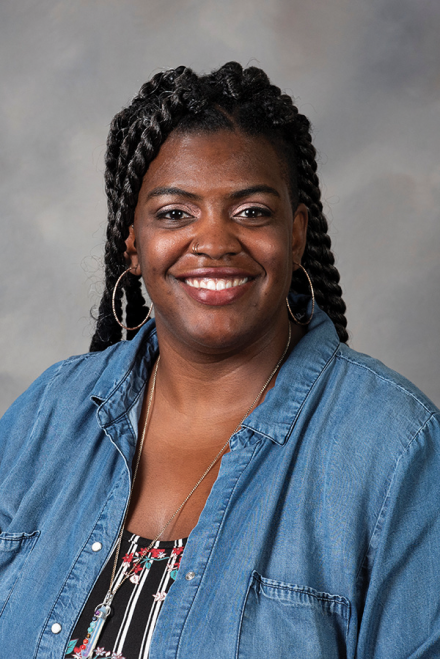In this 3000-level course, Associate Professor of Human Service Studies Vanessa Drew-Branch guides students in exploring the evolution of Black comedy in America and its role in exposing societal injustices.
Humor has always been a cornerstone within the Black community. From minstrel shows to social media, Black comedians have used humor to share their experiences. However, they have also used humor to expose societal injustices and challenge the status quo. But how? That, and the evolution of Black comedy in America, is what Associate Professor of Human Service Studies Vanessa Drew-Branch explores in her course, HSS 3704: The Black Comedy Revolution.
“We’re still talking about racial stereotypes, economic oppression, social exclusion to a large degree, and police brutality. All those themes have remained consistent throughout the time that has been documented, but the mediums have evolved over time, which is amazing,” Drew-Branch says.
During the course, students also analyze comedy segments such as “Def Comedy Jam” and “In Living Color,” listen to podcasts, and investigate the rise of social media as a tool of empowerment and autonomy for Black comics. An example of this is a major project within the course that asks students to analyze TikTok humor and its connection to social context.
Drew-Branch drew inspiration from current political and societal challenges while creating the course. She hopes students will gain an understanding of the power of humor and introduce the concept of Black joy as a vital form of resistance, illustrating how comics such as Dick Gregory and Dave Chappelle are examples of resistors to oppression in different forms.
“Black joy is a form of a coping mechanism around oppression. Black folks have found ways to resist that involve Black joy. It’s not always protests. Sometimes it is comedy. Sometimes it’s humor,” Drew-Branch says, adding that “resistance can take many different forms if we are open for critical analysis.”
This summer marked the first iteration of the asynchronous course, which Drew-Branch plans to offer annually. Additionally, she aims for it to gain an Advancing Equity Requirement (ARE) course designation, which is used to highlight courses that challenge students to reflect on systemic inequity while seeking outcomes where all people can thrive.
 About the Professor
About the Professor
Associate Professor of Human Services Studies Vanessa Drew-Branch’s teaching, scholarship and professional activities support equity for historically marginalized people. She has also created and facilitated mental health- and equity-related sessions for different audiences.
Recommended Materials
- “Standup Comedy as Social and Cultural Mediation,” by Lawrence E. Mintz
- “Racist humor: then and now,” by Raúl Pérez
- “Right to Offend: The Black Comedy Revolution” documentary (2022)


